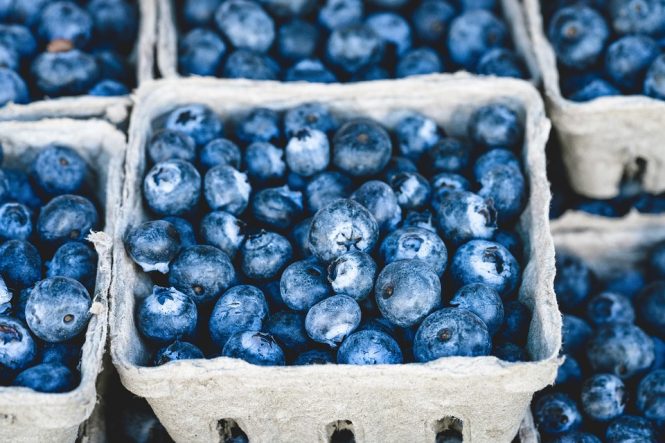
The Gut-Friendly Diet: Foods to Eat and Avoid for Ulcerative Colitis Relief
Ulcerative colitis (UC) is a chronic inflammatory bowel disease (IBD) that affects millions of people worldwide. While there is no known cure for UC, managing symptoms and inducing remission can be achieved through a combination of medication, lifestyle changes, and a well-planned diet. The gut-friendly diet, also known as the ulcerative colitis diet, is a tailored eating plan that helps alleviate symptoms and promote healing in the gut. In this article, we will discuss the best foods to eat and avoid for ulcerative colitis relief.
Understanding Ulcerative Colitis and Diet
Ulcerative colitis is a type of inflammatory bowel disease characterized by chronic inflammation and ulceration of the colon’s inner lining. Symptoms can range from mild to severe and may include diarrhea, abdominal pain, fatigue, weight loss, and rectal bleeding. While the exact cause of UC is unknown, research suggests that diet plays a significant role in managing the condition.
Foods to Eat for Ulcerative Colitis Relief
A gut-friendly diet for ulcerative colitis focuses on whole, nutrient-dense foods that are easy to digest and rich in anti-inflammatory compounds. Some of the best foods to eat for UC relief include:
- Lean Proteins: Chicken, fish, and tofu are excellent sources of protein that are gentle on the gut.
- Fresh Fruits: Fresh fruits like bananas, avocados, and berries are rich in fiber, vitamins, and antioxidants that help reduce inflammation.
- Leafy Greens: Leafy greens like spinach, kale, and collard greens are rich in omega-3 fatty acids, vitamins, and minerals that promote gut health.
- Whole Grains: Whole grains like brown rice, quinoa, and whole-wheat bread provide fiber, vitamins, and minerals that help regulate bowel movements.
- Probiotic-Rich Foods: Probiotic-rich foods like yogurt, kefir, and fermented vegetables like sauerkraut and kimchi help maintain a healthy gut microbiome.
- Healthy Fats: Healthy fats like olive oil, coconut oil, and avocado oil reduce inflammation and promote healing in the gut.
Foods to Avoid for Ulcerative Colitis Relief
Certain foods can trigger or worsen UC symptoms, and it is essential to avoid or limit them in your diet. Some of the foods to avoid include:
- Dairy Products: Dairy products like milk, cheese, and ice cream can be difficult to digest and may trigger symptoms in some individuals.
- Gluten: Gluten, a protein found in wheat, barley, and rye, can cause inflammation and worsen UC symptoms in some people.
- Spicy and High-Fiber Foods: Spicy and high-fiber foods like beans, cabbage, and broccoli can irritate the gut and trigger symptoms.
- Processed and High-Sugar Foods: Processed and high-sugar foods like cookies, cakes, and sugary drinks can cause inflammation and worsen UC symptoms.
- Carbonated Drinks: Carbonated drinks like soda and beer can irritate the gut and trigger symptoms.
- Foods High in Saturated and Trans Fats: Foods high in saturated and trans fats like red meat, fried foods, and processed snacks can increase inflammation and worsen UC symptoms.
Additional Tips for Managing Ulcerative Colitis through Diet
In addition to eating a balanced and gut-friendly diet, here are some additional tips to help manage UC symptoms:
- Stay Hydrated: Drink plenty of water to help regulate bowel movements and prevent dehydration.
- Eat Small, Frequent Meals: Eating small, frequent meals can help reduce symptoms and prevent irritation in the gut.
- Avoid Trigger Foods: Identify and avoid trigger foods that worsen UC symptoms.
- Consider a Food Diary: Keeping a food diary can help track food intake and identify patterns that may trigger symptoms.
- Consult a Healthcare Professional: Consult a healthcare professional or a registered dietitian to develop a personalized meal plan that meets your nutritional needs and helps manage UC symptoms.
Conclusion
The gut-friendly diet is a powerful tool for managing ulcerative colitis symptoms and promoting healing in the gut. By incorporating whole, nutrient-dense foods and avoiding trigger foods, individuals with UC can reduce inflammation, regulate bowel movements, and improve overall quality of life. Remember to consult a healthcare professional or a registered dietitian to develop a personalized meal plan that meets your unique needs and promotes optimal gut health.